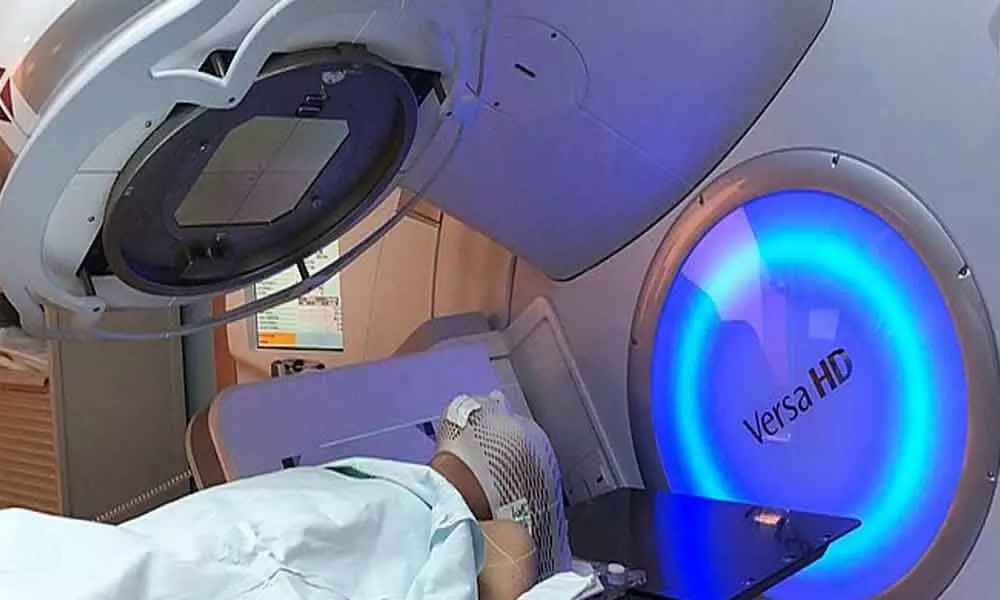Radiation Therapy Trials For Covid Patients Are Being Planned By Bengaluru Hospital

Radiation Therapy Trials For Covid Patients Are Being Planned By Bengaluru Hospital
Clinical trials for low dose radiation therapy (LDRT) for COVID-19 patients are planned to begin at HCG Cancer Hospital in Bengaluru, following studies by the All India Institute of Medical Science and others conducted abroad. X-ray treatment is referred to as radiation.
Clinical trials for low dose radiation therapy (LDRT) for COVID-19 patients are planned to begin at HCG Cancer Hospital in Bengaluru, following studies by the All India Institute of Medical Science and others conducted abroad. X-ray treatment is referred to as radiation. The trials have been filed with the HCG Hospital's Institutional Scientific and Ethics Committee as a potential treatment option for COVID-19 viral Pneumonia.
It has the potential to modulate the uncontrolled immune response that leads to catastrophic results in COVID-19 Pneumonia. While 60-70 gray (Gy) of radiation is administered to cancer patients, just 0.5 Gy will be provided here.
Dr. Lohit Reddy, Consultant Radiation Oncologist, Clinical lead-Radiomics and AI in cancer at HCG Hospital said that it will reduce cytokine storms, enhance oxygen reliance, mechanical ventilation, and lung injury prevention. It could be an essential treatment option for COVID-19 associated acute respiratory distress syndrome (ARDS) in patients who are moderate to critically ill and have exhausted all other therapeutic choices. It can be used in conjunction with other commonly prescribed treatments such as steroids, antiviral drugs, and oxygen.
The therapy is believed to have a lot of advantages like it will reduce the cytokine storm, which is a state of hyper-inflammation. When compared to the normal dose used for oncology radiation, the toxicity and long-term adverse effects of LDRT will be lower.
On the other hand, clinical trials must proceed with prudence and draw lessons from experience, when it comes to selecting the correct patients and initiating treatment during the precious opportunity of early symptom progression, whenever a positive response is expected most likely. Larger clinical trials will be required to confirm its efficacy, short- and long-term hazards, and low-dosing methods.
In association with the Hubballi hospital's branch, the trial will be conducted on a minimum of 10 patients over a period of 1 to 1.5 months.
According to reports, trials conducted in other countries have indicated that the treatment is effective. In other regions, phase-3 studies have yet to be completed. The health ministry can approve it as the standard of care based on the outcomes of this experiment.
A total of ten patients were examined and treated from June to August 2020 in the AIIMS trial conducted last year. Among the ten patients, one patient had to be intubated due to clinical deterioration. On day 24, he died of ARDS. The remaining 9 patients had completed clinical response and were discharged following a negative COVID test.















